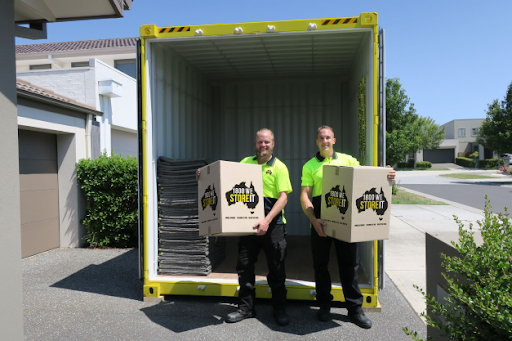HPV, hepatitis A, and hepatitis B are currently the only three STDs that can be prevented by vaccines. Other sexually transmitted diseases, including gonorrhea, chlamydia, and syphilis, do not yet have a vaccine.
Does the HPV vaccine prevent chlamydia?
The HPV vaccine does not prevent other sexually transmitted infections (STIs), such as HIV, herpes, chlamydia, and gonorrhea.
Is there a vaccine for STD?
One important prevention tool against sexually transmitted infections is vaccination. Currently, vaccines are available to protect against infection with HPV, hepatitis A and hepatitis B. Other vaccines are under development, including those for HIV and herpes simplex virus (HSV).
How do you prevent chlamydia?
Preventing chlamydia You can help to prevent the spread of chlamydia by: using a condom every time you have vaginal or anal sex. using a condom to cover the penis during oral sex. using a dam (a piece of thin, soft plastic or latex) to cover the female genitals during oral sex or when rubbing female genitals together.
Why isn’t there a chlamydia vaccine?
While there isn’t a chlamydia vaccine available yet, a potential vaccine for chlamydia was found to be safe in early clinical trials. This is a welcome development because untreated chlamydia can cause serious damage, particularly in women.
What STD needs a shot?
Syphilis can be treated with penicillin. The penicillin is given as a shot. If you had syphilis for less than one year, you only need to get one shot. If you had syphilis for more than one year, you need three shotsone shot a week for three weeks.
Can it be cured Chlamydia?
Yes, chlamydia can be cured with the right treatment. It is important that you take all of the medication your doctor prescribes to cure your infection. When taken properly it will stop the infection and could decrease your chances of having complications later on.
Had HPV vaccine can I still get HPV?
There is a small chance that someone might still get genital warts after having all their HPV vaccine shots. The vaccine protects against 90% of the HPV strains that cause genital warts. But there are lots of different strains (types) of HPV and the vaccine cannot protect against them all.
Is there a HSV vaccine?
Potential vaccines for herpes simplex virus (HSV) may prevent or treat symptoms of an HSV infection. HSV vaccines must pass through several steps before they are approved. Testing on HSV vaccines has been done, but vaccines have not yet shown enough benefit in humans.
What is BCG injection?
The BCG vaccine protects against tuberculosis, which is also known as TB. TB is a serious infection that affects the lungs and sometimes other parts of the body, such as the brain (meningitis), bones, joints and kidneys.
What is the strongest antibiotic for STD?
Azithromycin in a single oral 1-g dose is now a recommended regimen for the treatment of nongonococcal urethritis. Highly effective single-dose oral therapies are now available for most common curable STDs.
Why do I keep getting chlamydia?
There are a few reasons why you might contract chlamydia a second time: The initial infection wasn’t cured because the course of antibiotics wasn’t completed as directed. A sexual partner transmitted chlamydia to you. You used a sex toy that was contaminated with chlamydia.
How long can you carry chlamydia?
Most people who have chlamydia don’t notice any symptoms. If you do get symptoms, these usually appear between 1 and 3 weeks after having unprotected sex with an infected person. For some people they don’t develop until many months later. Sometimes the symptoms can disappear after a few days.
What does chlamydia smell like?
These secretions (produced by the mucous glands) combine with dead infected cells to produce discharge. A white discharge may also be caused by vaginal thrush, however, but this is usually curd-like, often odourless, or smells like bread or yeast.
What happens if you dont treat chlamydia?
What happens if chlamydia goes untreated? If a person is not treated for chlamydia, complications may occur. Women frequently develop pelvic inflammatory disease (PID). PID can cause infertility (not being able to get pregnant), chronic pelvic pain, tubal pregnancies, and the continued spread of the disease.
How many pills do you take for chlamydia?
With antibiotics, usually doxycycline or azithromycin. It is important that you take the pills as directed. The disease may not be cured until all the pills are taken. Azithromycin treatment consists of 4 pills taken all at one time.
Why doesn’t gonorrhea have a vaccine?
There is currently no effective gonorrhea vaccine available and the disease is known to be contracted repeatedly without apparently developing protective immunity as a result of previous infection. In addition, antibiotic resistance is increasingly common for this bacterium.
How many azithromycin do I take for chlamydia?
Dosage. According to the CDC’s STD Treatment Guidelines, one dose of azithromycin (1 gram) taken orally will cure genital chlamydia.
Does it really take 7 days to cure chlamydia?
It takes 7 days for the medicine to work in your body and cure Chlamydia infection. If you have sex without a condom during the 7 days after taking the medicine, you could still pass the infection to your sex partners, even if you have no symptoms.
How can I treat chlamydia without going to the doctor?
Chlamydia can only be cured with antibiotic treatment. Home remedies for chlamydia can’t cure the infection, though some may offer minor relief of symptoms as you complete the entire course of antibiotics. Prompt treatment can help you avoid serious complications.
Does chlamydia ever fully go away?
Nope!Chlamydia is easily cured with antibiotics. Chlamydia is a bacterial infection (like strep throat or an ear infection), which means that once you’ve been treated and tested negative for it (to make sure the antibiotics worked), it’s gone.
Is chlamydia a big deal?
It’s not a big deal – it’s the most common sexually transmitted infection you can pick up. 80 per cent of people who have chlamydia don’t have any symptoms. The doctor will give you one dose of antibiotics and boom, you’re cured.
How do I know my chlamydia is gone?
When will the signs and symptoms go away?
- Discharge or pain when you urinate should improve within a week.
- Bleeding between periods or heavier periods should improve by your next period.
- Pelvic pain and pain in the testicles should start to improve quickly but may take up to two weeks to go away.
Is HPV contagious for life?
Most cases of HPV clear within 1 to 2 years as the immune system fights off and eliminates the virus from the body. After that, the virus disappears and it can’t be transmitted to other people.
Can HPV lie dormant for 30 years?
HPV can lie dormant for years Although the virus often heals on its own, in other cases, it lies dormant in the body and can trigger cancers years after infection. In fact, cervical cancer from HPV commonly takes 10 to 20 years or more to develop.
Can you get HPV with only 1 partner?
You can get HPV by having vaginal, anal, or oral sex with someone who has the virus. It is most commonly spread during vaginal or anal sex. HPV can be passed even when an infected person has no signs or symptoms. Anyone who is sexually active can get HPV, even if you have had sex with only one person.
Is HSV-1 an STD?
Although HSV-1 isn’t technically an STD, you can potentially catch the virus through sex. If you receive oral sex from a person with HSV-1, there’s a risk that the virus could make its way into your body through their saliva.
Do HSV-1 antibodies protect against HSV-2?
Some studies have suggested that prior infection with HSV-1 may provide partial protection against infection with HSV-2 [710], whereas others have suggested that prior HSV-1 infection has no effect on acquisition of HSV-2 [11, 12].


